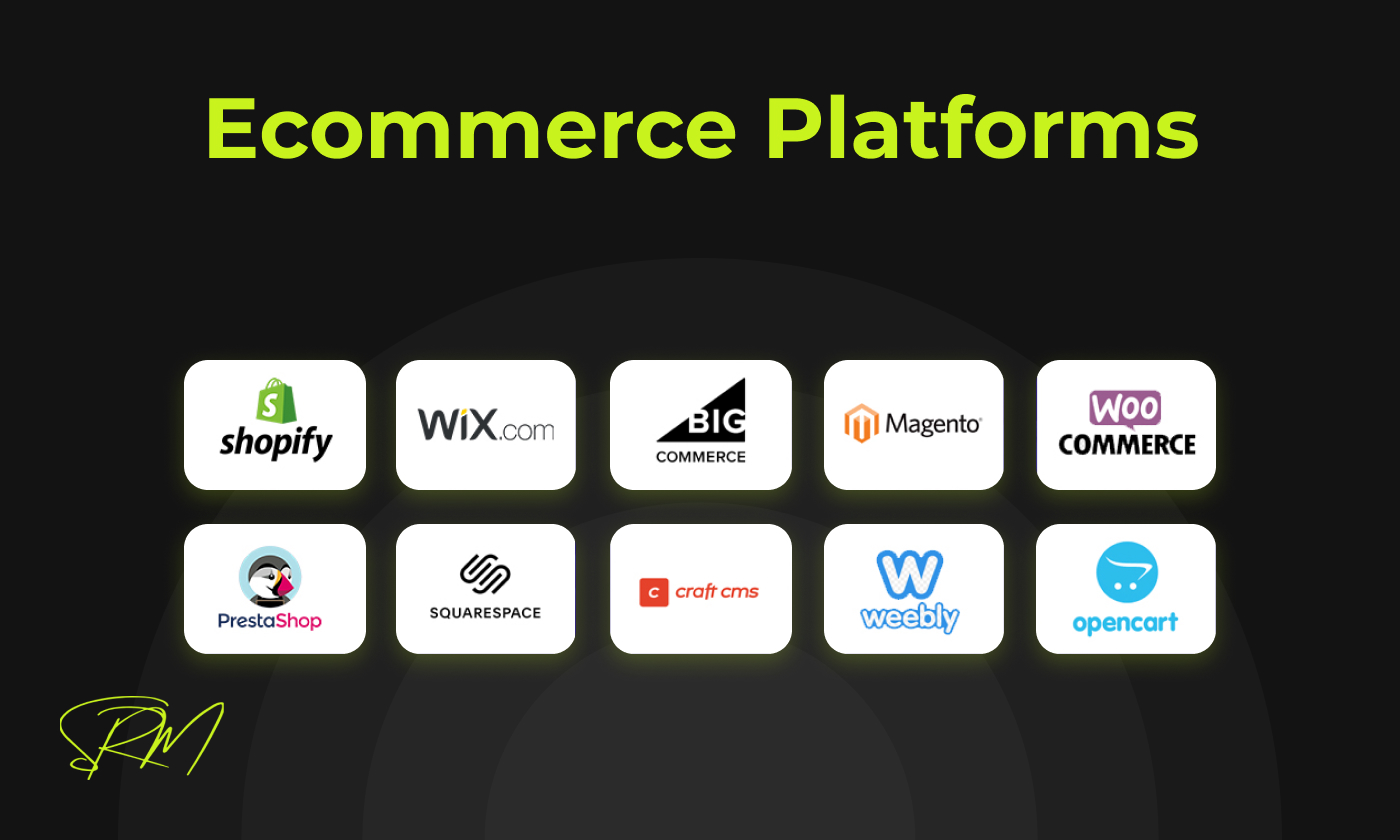
Starting an online store is an exciting venture, but choosing the right e-commerce platform is important for its success. The platform you select will significantly impact your website’s functionality, design, scalability, and ultimately, your sales. With numerous options available, navigating the e-commerce landscape can be overwhelming. This guide will help you understand the key factors to consider when choosing the best platform for your specific business needs.
Understand Your Business Requirements
Before diving into platform features, take a step back to evaluate your business needs. Consider the size of your product catalog, expected traffic, sales volume, and your budget for setup, maintenance, and growth. This is important because platforms vary in terms of what they offer for different types of businesses. For instance, a small online store might prioritize a simple, easy-to-use platform, while larger enterprises with more complex needs may look for advanced tools and features.
By understanding your requirements, you’ll avoid wasting time and resources on a platform that doesn’t meet your needs. A well-chosen platform will seamlessly align with your business vision and help streamline your operations as you grow.
Explore Popular E-commerce Platforms
Shopify: A popular choice for businesses of all sizes, offering a user-friendly interface, a vast app store, and excellent customer support.
WooCommerce: A free and open-source WordPress plugin that provides high flexibility and customization options.
BigCommerce: A robust platform suitable for high-volume businesses, offering advanced features and scalability.
Squarespace: A visually appealing platform with a focus on design and ease of use, ideal for smaller businesses and those with limited technical skills.
Magento: A powerful and highly customizable platform for large enterprises, offering advanced features and flexibility, but requiring more technical expertise.
Consider Scalability and Growth
Your e-commerce platform should grow with your business. Ask yourself if the platform can handle increased traffic and transactions as you scale. Platforms like Magento, BigCommerce, and Shopify Plus are great for businesses that anticipate rapid growth because they offer scalability features such as multi-channel selling, enterprise-level security, and advanced reporting tools.
Scalability is important for long-term sustainability. Whether you expect to expand your product range or increase global sales, choosing a platform that supports growth ensures your business won’t outgrow its infrastructure too soon.
Focus on Customization and Design Options
Your online store should reflect your brand identity, which is why having customization options is essential. The platform you choose should offer a variety of templates and design tools that allow you to modify the store to fit your aesthetic and functional preferences. Some platforms, such as WooCommerce or Shopify, offer extensive customization through third-party plugins or built-in features.
Additionally, mobile responsiveness is a must. More than half of online shoppers use mobile devices, so you need a platform that guarantees your store looks great and functions smoothly on all devices. A mobile-optimized site can improve customer satisfaction and increase conversion rates.
Check for Essential E-commerce Features
Your platform should offer all the functions to manage and grow your online store. Key features comprise secure payment gateways, inventory management, shipping and tax calculators, as well as multilingual and multiple currency support, which will run your operations pretty smoothly and assist you in processing orders efficiently with a seamless experience for your customer.
Besides that, it needs to be integrated with other e-commerce tools such as marketing and CRM software. It should also provide easy integrations with email marketing systems, analytics tools, and social media platforms so you can manage your marketing processes and monitor performance.
Prioritize Security and Reliability
With cyber threats on the rise, your e-commerce platform must provide strong security to protect both your business and customers. Important features include Secure Sockets Layer (SSL) certification for secure transactions, Payment Card Industry (PCI) compliance for payment processing, and regular platform updates to fix security issues.
Choosing a platform that is regularly updated and backed by a strong security team ensures that your store is always running safely. A secure platform also builds customer trust, which is vital for retention and long-term success.
Compare Pricing and Costs
E-commerce platforms come with varying costs that include monthly subscription fees, transaction fees per sale, and additional costs for apps, plugins, or themes. While it’s tempting to choose the cheapest option, make sure the platform you choose provides all the necessary features you need without hidden costs.
Budget-conscious businesses might prefer platforms like WooCommerce, which offers a free plugin for WordPress (though you will need to pay for hosting and additional features), or Wix, which has affordable plans for smaller businesses. On the other hand, platforms like Shopify and BigCommerce come with all-in-one pricing but may have higher monthly fees, making them better suited for larger businesses with more complex needs.
Check Integration Capabilities
A good e-commerce platform should integrate seamlessly with third-party tools, including inventory management software, payment processors, and marketing tools. Integration with tools like Google Analytics, email marketing services, and shipping providers can help you manage your business efficiently, track key metrics, and improve customer experience.
The more flexible and open the platform is to integration, the easier it will be to connect your business with the tools and services you need to operate effectively. This is an important factor if you plan to expand your e-commerce strategy in the future.
SEO Importance for Your E-commerce Store
Search engine optimization (SEO) is crucial for the success of your e-commerce store. No matter how well your platform is designed or how excellent your products are, if customers can’t find your store online, your sales will suffer. SEO helps your website rank higher on search engine results pages (SERPs), driving organic traffic to your site. By optimizing your product listings, site structure, and content with relevant keywords, an ecommerce SEO specialist can help you reach a wider audience. Strong SEO practices can lead to increased visibility, more website visitors, and ultimately, higher sales and conversions.
- Higher SERP rankings boost visibility
- Better user experience increases engagement
- Improved conversions lead to growth
The Role of AI in E-commerce
Artificial Intelligence (AI) is revolutionizing the e-commerce sector by enhancing both the customer experience and business efficiency. AI can analyze vast amounts of data to predict customer preferences and behaviors, enabling more personalized shopping experiences. AI tools can also streamline backend operations like inventory management, making businesses more agile and responsive. From chatbots to product recommendations, AI is helping businesses operate smarter and more efficiently, increasing sales and improving customer satisfaction.
- Personalized recommendations boost sales
- AI chatbots enhance customer service
- Data-driven insights improve decisions
- Automated inventory management reduces costs
- Faster checkouts improve user experience
Assess Customer Support Availability
When issues arise, reliable customer support is invaluable. Opt for platforms that provide around-the-clock support, either via live chat, email, or phone. Good customer support not only solves problems but also ensures your business runs smoothly without unnecessary downtime.
Consider platforms with a strong support network, including access to community forums, help articles, and tutorials. Shopify, for example, is known for its 24/7 customer service, while other platforms, like BigCommerce, also offer excellent support through various channels.
Test Before You Commit
Many of the e-commerce platforms give a free trial so utilize those for first-hand testing of the platform. Make the most out of this period to experience its features, check how it’s to be used as a UI, and make your first listings for products, place orders, and design your shop. The above practice will clear the haze if e-commerce is suited to your business.
During the trial, consider your customer feedback through online reviews and discussions to see how it will perform in real situations. So, this could make you change to avoid costly mistakes.
Conclusion
Selecting the best e-commerce platform requires careful consideration of your business goals, technical needs, and budget. Platforms like Shopify, WooCommerce, BigCommerce, and Wix cater to different requirements, so take your time exploring options that align with your unique needs. A well-chosen platform can set the foundation for a thriving online business, ensuring a seamless shopping experience for your customers and steady growth for your brand.It’s also important to work with an ecommerce SEO specialist to make sure your online store ranks well on search engines. They help optimize your site, making it easier for customers to find you, which leads to more traffic and better sales.





